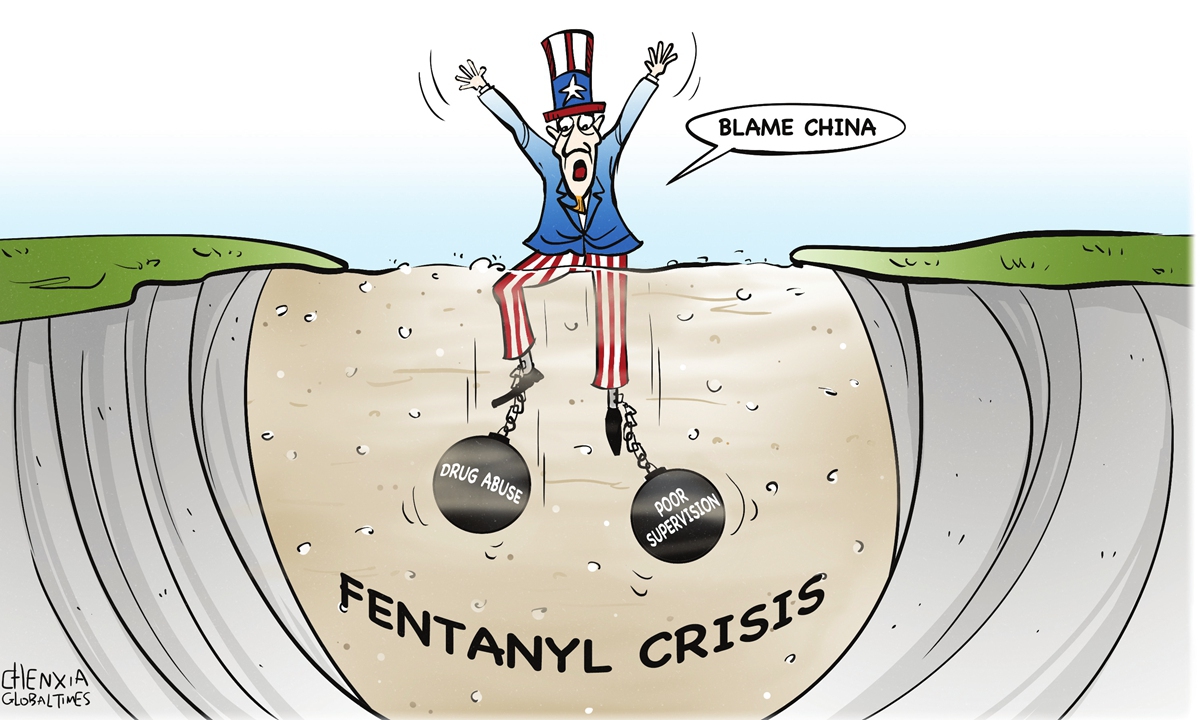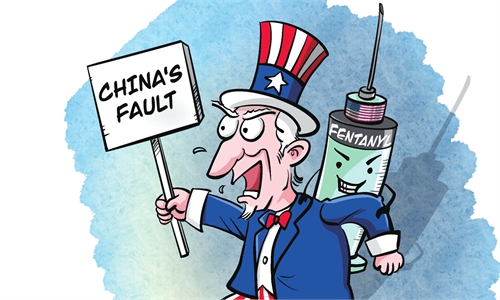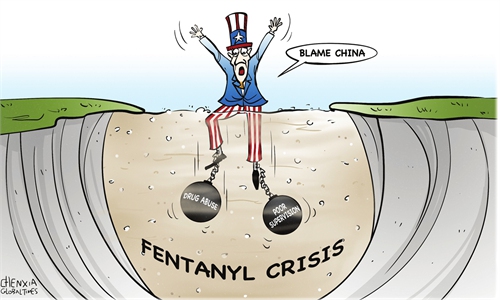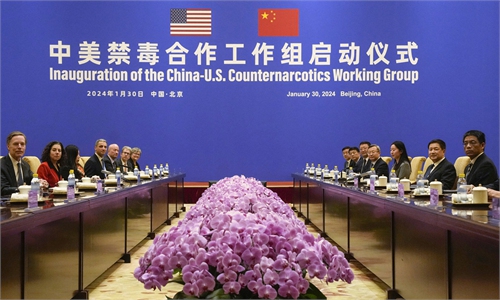
Illustration: Chen Xia/Global Times
It appears easier for politicians in Washington to shift blame onto China for the US fentanyl crisis, rather than really taking action domestically. Perhaps because by misleading the public and scapegoating China, they can avoid responsibility for failing to take really effective but difficult measures to combat the crisis.The US House of Representatives select committee on China said in a report on Tuesday that China fuels the US fentanyl crisis by subsidizing the production of fentanyl precursors and fentanyl analogues, Reuters reported.
This is not the first time that American politicians have linked the fentanyl crisis to China. Labeling China as "fueling the crisis" is a complete distortion of the facts, which only reflects a lack of willingness to take some really effective measures.
Fentanyl precursors refer mainly to the chemical compounds that are used in the synthesis or production of fentanyl. Due to the various synthesis methods available for fentanyl and its analogues, the chemical ingredients involved are numerous. Although some of these chemicals were placed under international control under the 1988 Convention, these materials can still be legally utilized for medical, industrial or commercial purposes.
In terms of counter-narcotics, China has the strongest determination, the most relentless policy and one of the best records in the world. China's counter-narcotics authorities fight the illicit diversion of precursor chemicals in strict accordance to law and make sure that relevant companies do their business in accordance with the laws and regulations, a Chinese foreign ministry spokesperson said on Wednesday, responding to a question about fentanyl.
It is the fundamental duty of the importing enterprise, along with the legal obligation of the importing country's government, to ensure that the chemicals are not used for illicit purposes in accordance with international and common practices. The responsibilities that should be shouldered by the importing party should not be shifted onto the exporting party.
The Chinese government has consistently enforced stringent control over fentanyl substances and taken steps to prevent their illicit circulation in the market. Moreover, China has not only effectively combated drug abuse at home, but has also been actively engaged in worldwide drug enforcement efforts, and it has responsibly collaborated with the international community, including the US. This shows China's determination and sense of responsibility in the global fight against drug abuse.
The fentanyl crisis in the US is entirely self-inflicted, stemming from a prevalent domestic culture of prescription painkiller abuse.
Americans, representing only 5 percent of the global population, consume a staggering 80 percent of the world's opiates. Various factors, such as pharmaceutical companies' aggressive marketing tactics, doctors' excessive prescribing practices and the negative impact of marijuana legalization have all fueled the relentless growth of the drug market and ultimately led to the crisis of abuse.
Behind the US fentanyl crisis are deep-seated problems with drug regulation, the healthcare system and health education. Yet, in the face of the escalating abuse of fentanyl, US politicians have chosen to shift blame to China, instead of doing something that can be really helpful, such as decreasing domestic drug demand, enhancing prescription drug controls and improving drug education.
The current approach not only fails to address the problem, but it may also divert domestic attention away from the issue, and that may be the real purpose of those politicians.
With regard to fentanyl, China has demonstrated sincerity and a willingness to cooperate, in stark contrast to the insincere rhetoric coming from Washington. By disregarding China's efforts to control fentanyl, the US has tried to baselessly pass the buck onto China, undermining global anti-drug cooperation and hindering its own progress to combat the crisis.



